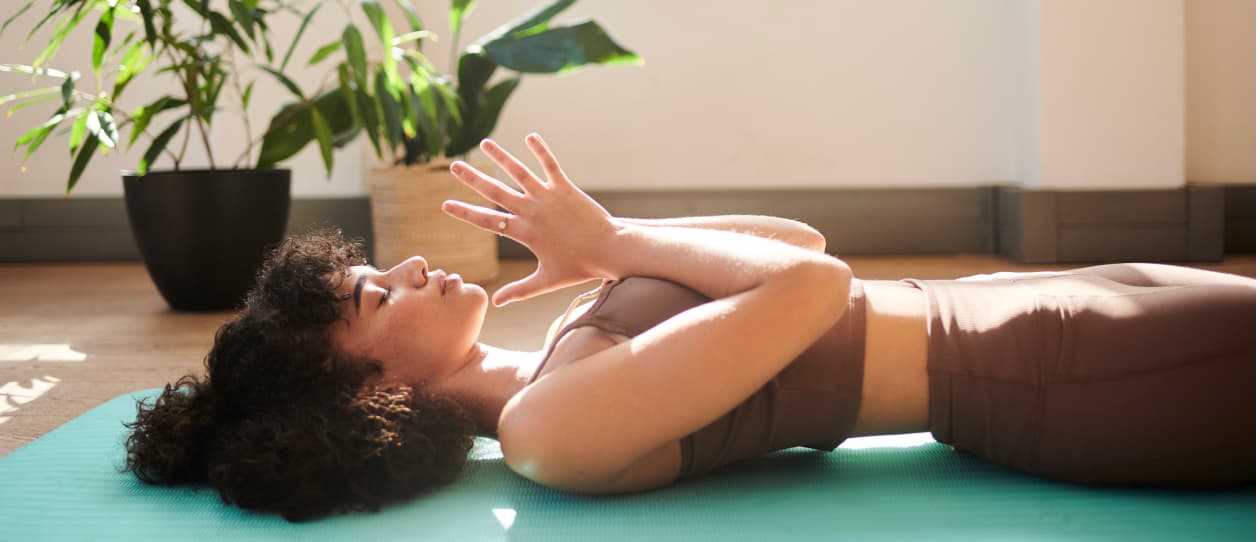
- Health hub/
- Tips & Advice on Improving your Brain Health/
- Detox your mind


On top of the mental load involved with working in our jobs, we have the news, emails, and social media all coming at us from all directions.
All of this can tire the brain, filling it with sensory overload, with so many messages and thoughts that it can feel like it’s clogged. Just as a messy room or desk can lead to overwhelm, negativity, stress, unwanted thoughts, and confusion, a cluttered mind can have a similar impact, affecting the ability to focus and think clearly.Just like we need to clean our spaces so we can better find things and move about, our minds also need detoxing, or clearing, so we can think more clearly and hold a sense of calm among the chaos of our daily lives.
You might notice you need a detox if you are saying, “I can’t think!”, if you feel mentally fatigued, irritable, low in mood, have trouble concentrating, or experience headaches.
Quite often, what’s needed is to withdraw your mind from stimulation. You might feel like you need to be alone in a quiet space, to close your eyes or lie down, to quieten the mind and the senses. You might feel like you don’t want to think about anything.
Top steps to detox your mind
Digital detox
It may seem difficult, but you will thank yourself for giving yourself space from digital devices — even if you can’t eliminate them completely, reduce the amount of time you use them. You could make a pact with yourself to keep your phone away and not reach for it unnecessarily for a period during the day. Notice the difference with just a slight change in your technology habits.Meditation
Meditation is the practice of focusing on one thing, which aids in bringing you into the present moment, physically and mentally. Taking deep breaths and noticing these and other bodily sensations as you do this can be a helpful exercise. The most important part of meditation is focusing your attention on one thing, whether it be your body, your breath, what you are doing or an object.
This process can help you to slow down and filter out any irrelevant, unwanted, and distracting thoughts, allowing them to float away in the background and enhancing your focus. Often, stillness can help, but meditation can also occur, for instance, while you are gardening, cooking or walking.
Get good quality sleep
There is truth to the saying, “Sleep on it,” so you can wake up with a fresh mind. Getting enough sleep also gives your brain a rest from a day’s stimulation.
Did you know that when you sleep, your brain goes through a detoxification process, removing waste from the brain? According to Harvard University, this process occurs through its glymphatic system, also known as the brain’s waste management system.
As the National Heart, Lung and Blood Institute reports, sleep prepares the brain for the next day to support learning and information retention. Sleep can aid in focus, decision-making, and creativity.
Sometimes an overwhelming number of thoughts and stimuli can affect your ability to get to sleep. This is when an effective sleep routine incorporating relaxation techniques such as visualisation and meditation can assist.
Journaling
Carving out time to write down all the thoughts on your mind can be cathartic. Also called a “brain dump,” journaling can serve as an outlet, as a Greater Good Science article discusses, to release and help process repetitive, unwanted or worrying thoughts. Your mind can then be clearer and more productive.
By creating space between you and your thoughts, you can see them as an outsider and more objectively. As The Psych Centre explains, this can help identify and defuse unhelpful thoughts during the process.
Getting these thoughts onto paper can clear your mind, and as Lifeline reports, help you make sense of them. It can foster self-awareness of how you are feeling and thinking, and, according to the University of Rochester Medical Center, identify unhelpful thoughts and why you may be feeling stressed. This understanding can then prompt plans to address these sources of stress.
Try to write consistently and make it a routine. Just before or after dinner, or first thing in the morning, when you are not too tired, may be good times to write. Have a dedicated journal and don’t censor yourself. Write whatever comes out to help clear your mind.
Exercise
Moving your body gives your mind a break from what you were doing and helps you let go of thoughts you couldn’t make sense of or worries you couldn’t shake. Walking is an accessible and simple exercise option. You should notice a difference even if you can only afford 10 minutes.
Getting into a daily routine can help manage stress and the mental demands of each day. For example, after your morning of work, reset with a walk of at least 10 minutes, which should help you feel refreshed and have a productive day.
As California’s San Antonio Regional Hospital reports, the rhythmic nature of walking can be a form of meditation that quietens the mind.
Spend time in nature
Nature has the power to refresh, restore and energise. The Nature Conservancy Australia has found that just 20 minutes outdoors can have the same pick-me-up effect as a cup of coffee. Even looking at nature can have benefits, so having some indoor plants or nature artwork can also help.
A change in scenery, which comes with stepping out of the indoor environment and into nature, can give your mind a break, reduce stress, promote relaxation, enhance focus and spark creativity, according to UC Davis Medical Center.
Aside from improving concentration, research published in a 2023 Current Psychology paper suggests that walking in nature can be effective for addressing negative rumination.
Step outside when you can, have lunch outside or go for a short stroll around the block for whatever time you can afford during the day.
Declutter
Decluttering has gained more awareness in recent years for its health and wellbeing benefits. People are turning to various decluttering methods, such as the hugely popular KonMari Method, recognising and experiencing the clarity, calm, and confidence that come with cleaning and clearing the spaces they live and work in, as well as the things they own.
Research has shown that the more your brain is physically stimulated, the more overwhelmed and distracted it can get, with more stimuli competing for attention.
More things can also mean more things to think about, and more decisions to be made. As the Royal College of General Practitioners reports, visual clutter can increase cognitive overload and reduce working memory. Including these practices in your daily life can help you and your thoughts slow down and allow excess, unhelpful thoughts to leave your mind. This allows for more space for clearer thinking and more positive, helpful thoughts.
Disclaimer: The information provided here is for general wellbeing and educational purposes only. Everyone’s health needs are different — so if you have specific questions or medical conditions, please speak with your healthcare professional before starting any new supplement or health program.




